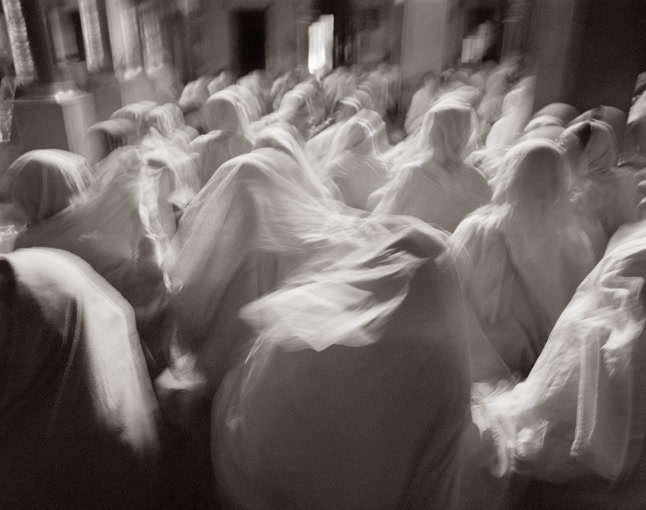11 July 2020
Dearest Fazal,
We are not so different, humans and birds; pigeons and people. When I see this flock of believers in the Bhajan Ashram in Vrindravan, India, I see migratory wings of devotion, the instinctive pull to return and gather among one’s own kind. But then, because I know you, Fazal, I must seek facts and nuances. What I thought were wings are now partial shrouds spun from the filaments of the dead. What I discover is that these pilgrims are women, their exodus from home is not of their own choosing. Their husbands have died. Banished by their families for the shame of being a widow they leave their communities wearing garments of grief with little or no possessions save their breaking hearts.
Sometimes I don’t want to know the story, Fazal.
Sometimes I just want to make up my own story, create my own narrative like I do when I’m reading a newspaper in a foreign country in an unknown language. I don’t have to face the pain of the world, in particular, the pain of women. When the hurt becomes intolerable, we can resort to speaking in tongues.
But you didn’t just give me thirty photographs—you have placed in my hands across a great distance during a global pandemic a photographic map of your travels around the world. I discovered if I turn over the image and read your delicate script on the back of the photograph written with a thin black pen, then you make me accountable. And because of our collaborations, I understand what captions mean to you: context, story, injustices.
What I saw as birds, I see as grieving women mourning the lives and losses of their husbands together. Each woman cast out as a widow has found her humble way through an arduous path to the holy city of Krishna. Belief in the god she loves is replacing the body of the man she loved. Can a woman ever forget the man and the children that came through them? Can devotion of any kind, religious or secular, cancel a life lived before a new-found fidelity? Even a fidelity toward the self?
And I wonder how poverty directs and informs the lives of these widows who are now alone in the world at the mercy of the begging bowls they hold in their worn and wan hands. Their prayers and songs uttered on the streets are rewarded with scant offerings of food and coins. And where does a single woman go upon receiving the news that the ashram cannot accommodate her?
Perhaps this is the road to sainthood. Perhaps this is the path to insanity. Maybe there is no difference—despair marries devotion in order to survive, what every mother knows in the daily dissolution of her life given away to those she loves.
Widow is an ugly word.
You made this single word a plural beauty.
Love,
Terry
